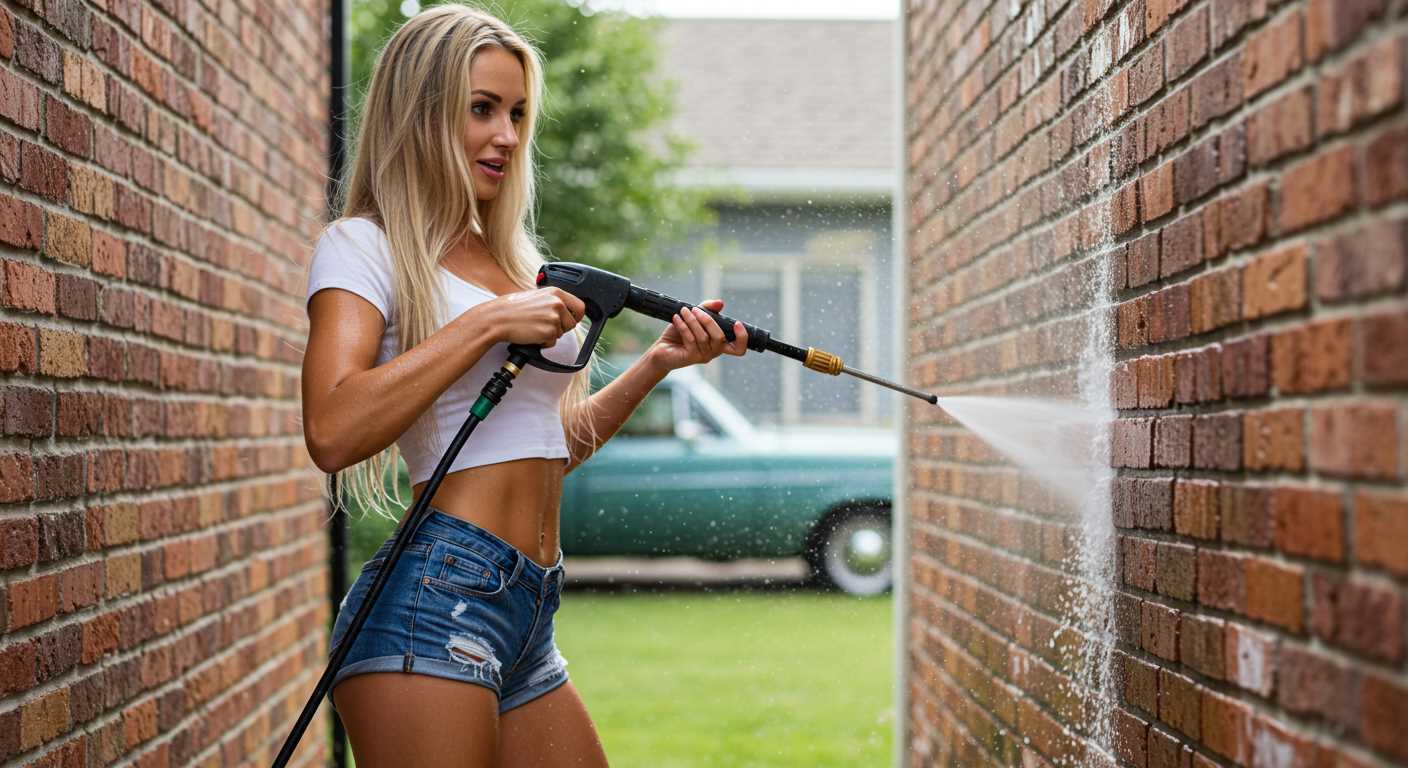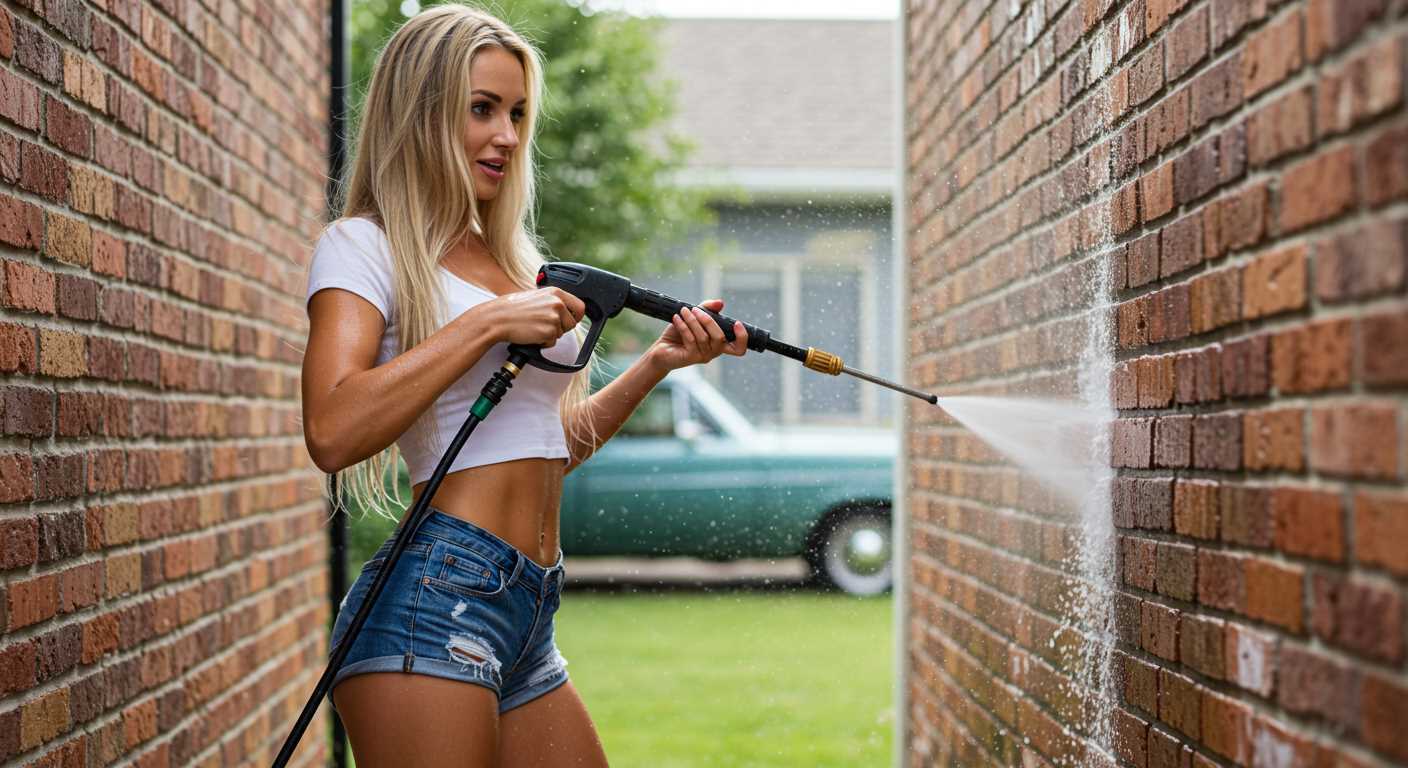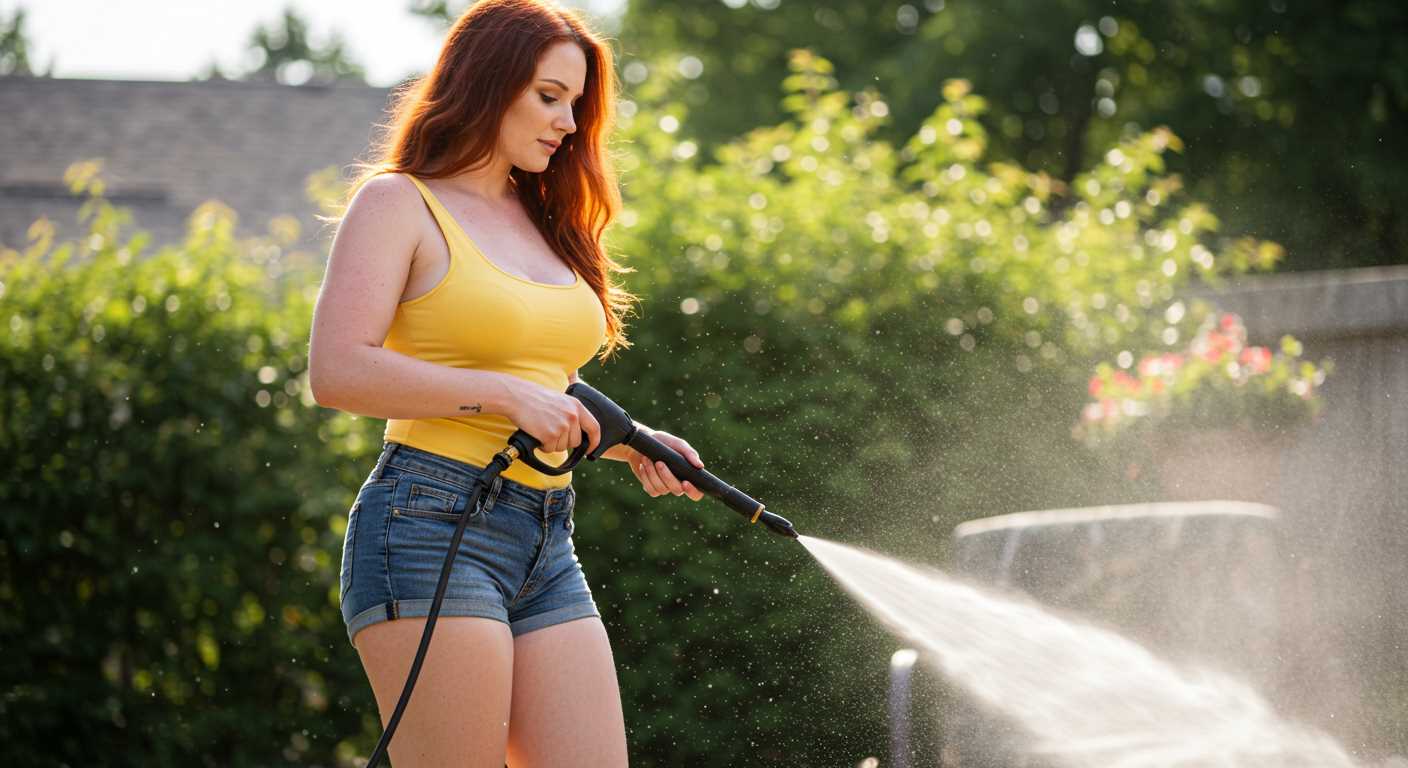




If your cleaning device fires up for a moment and then cuts out, the solution often lies in examining the fuel supply. Ensure that the tank is filled with fresh fuel, as stale or contaminated gasoline can lead to starting issues. I recall a time when a customer brought in their unit, frustrated because it would only run for a few seconds. A quick check revealed they had been using fuel that had been sitting for months. After replacing it with a fresh batch, the machine functioned perfectly.
Next, inspect the air filter. A clogged filter can restrict airflow, causing the engine to stall shortly after ignition. I’ve seen many units fail to maintain operation simply due to a dirty filter. Cleaning or replacing it regularly can save you from unnecessary headaches. Once, I helped a friend with his setup, and after a simple air filter change, it ran like new.
Another common culprit is the spark plug. A worn or fouled spark plug can lead to ignition problems, preventing the engine from running smoothly. I remember working on a model that had a faulty spark plug. After a quick swap, it roared back to life. Regular maintenance of spark plugs is key to keeping your equipment in prime condition.
Lastly, pay attention to any leaks in the fuel line or connections. Even a small crack can cause fuel to escape, leading to inconsistent performance. I once encountered a situation where a minor leak went unnoticed, but once repaired, the device operated continuously without any interruptions. Keeping an eye on such details can save you time and frustration.
Common causes for pressure washer shutdown
Regularly, the culprit behind unexpected cessation involves fuel or power supply issues. Ensure the fuel tank is adequately filled, and check for any blockages or leaks in the fuel line. In electric models, inspect the power cord and plug for damage, as well as the outlet to confirm it’s working properly.
Overheating
Overheating can trigger an automatic shutoff mechanism. Make certain that the cooling vents are free from debris, and allow the unit to cool down for a while before attempting another operation. Running the machine without sufficient water supply can also cause overheating, so verify that the water source is steady and adequate.
Clogged filters and nozzles
Another frequent issue lies with clogged filters or nozzles. Regular maintenance involves cleaning or replacing these components. If you notice a significant drop in performance or a sputtering sound, it’s time to inspect and clean them thoroughly.
Lastly, look out for any signs of wear or damage in the internal components. A worn-out pump or faulty pressure switch can disrupt the operation. If troubleshooting these common causes doesn’t resolve the issue, contacting a professional for further assistance may be necessary.
How to Check Fuel and Oil Levels
First, ensure your machine is on a flat surface and the engine is turned off. Check the fuel tank by removing the cap and looking inside. If the fuel level is low, fill it with fresh fuel, avoiding any old or contaminated petrol that can lead to performance issues. Always use the recommended type of fuel for your equipment.
Oil Inspection
Next, locate the oil dipstick. Remove it, wipe it clean, and reinsert it to check the level. If it’s below the minimum mark, add the appropriate oil type until it reaches the correct level. Regular oil checks are necessary for smooth operation and longevity of the engine.
Additional Tips
While you’re at it, inspect for any leaks around the fuel and oil areas. An oil leak can lead to significant problems, so addressing it early is crucial. Additionally, maintaining clean fuel and oil can prevent clogs and ensure optimal performance during operation. For those interested in enhancing their cleaning skills, consider checking out this guide on how to clean sash windows the ultimate guide for sparkling windows.
Inspecting the Power Supply and Extension Cords
Check the power source for consistent voltage. Low voltage can cause equipment to stall. Use a multimeter to measure the voltage at the outlet. If it’s below the required level, the issue is likely with the power supply.
Extension Cords
Evaluate any extension cords in use. They should be rated for the amperage needed and as short as possible. A lengthy or inadequate cord can lead to voltage drops that result in shutdowns. Here’s how to assess them:
- Confirm the cord gauge. For most machines, a 12-gauge cord is adequate.
- Inspect for damage such as frays, cuts, or exposed wires. Replace any compromised cords.
- Ensure connections are secure. Loose connections can lead to intermittent power loss.
- Avoid daisy-chaining multiple cords, as this increases resistance and can cause overheating.
Power Outlet
Inspect the outlet itself. Sometimes, the outlet may be faulty. Here’s how to troubleshoot:
- Plug in another device to the same outlet to check if it functions properly.
- Look for tripped breakers in your electrical panel. Reset if necessary.
- Consider using a different outlet to eliminate potential issues with the current one.
By ensuring a stable and adequate power supply, you can avoid unnecessary interruptions and enjoy smooth operation of your cleaning equipment.
Diagnosing issues with the pressure washer pump
Inspect the pump for signs of wear or damage. Check for leaks around the seals and connections. If there is water dripping, it indicates that the seals may need replacement or the fittings require tightening. A worn-out pump can lead to inadequate pressure, causing frequent halts in operation.
Next, examine the inlet filter. A clogged filter can restrict water flow, leading to overheating and subsequent shutdown. Clean or replace the filter if it appears dirty or damaged. Additionally, ensure that the hose connected to the water source is not kinked or blocked, as this can hinder proper water intake.
Monitor the temperature of the pump during operation. If it feels excessively hot, it may signal that the pump is not getting enough water or is functioning improperly. In such cases, allow the unit to cool before restarting and investigate the water supply line for issues.
Pay attention to the unloader valve, as its malfunction can cause pressure fluctuations. If it’s stuck, the pump may not maintain consistent pressure, leading to operational interruptions. Testing the unloader valve for proper operation can help identify this issue.
Finally, listen for unusual noises during operation. Grinding or rattling sounds can indicate internal damage, which may require professional inspection or pump replacement. Regular maintenance can prevent these issues, so keep an eye on any irregularities in performance.
| Issue | Potential Cause | Solution |
|---|---|---|
| Leaks | Worn seals or loose fittings | Replace seals or tighten connections |
| Clogged inlet | Dirty filter | Clean or replace filter |
| Overheating | Insufficient water supply | Check for blockages and ensure proper flow |
| Pressure fluctuations | Malfunctioning unloader valve | Test and repair or replace unloader valve |
| Unusual noises | Internal damage | Inspect by a professional or consider replacement |
Understanding the Role of Filters and Clogs
Regularly inspecting and maintaining filters is critical. A clogged filter can restrict water flow, leading to performance issues. Here’s how to address this:
- Check the inlet filter located where the water supply connects. If it’s dirty, clean or replace it.
- For models with additional filters, ensure they are also clear of debris.
During my years in the industry, I encountered many customers who overlooked this simple task. One particular instance involved a homeowner struggling to clean patio slabs. After a brief inspection, it turned out that a clogged filter was the culprit. Once replaced, the machine functioned flawlessly.
Clogs can also occur in hoses or nozzles. Here’s a quick checklist for inspection:
- Examine hoses for kinks or blockages. Water should flow freely.
- Inspect spray nozzles for dirt or mineral buildup. Clean them with a small brush or soak them in vinegar.
Remember, maintaining clear paths for water ensures optimal performance. Regular checks can prevent unexpected interruptions during use. For those tackling tasks like cleaning patio slabs, a smooth operation makes all the difference.
When to Seek Professional Help for Repairs
If you find yourself facing persistent issues with your cleaning equipment, it’s time to consider professional assistance. When troubleshooting steps yield no results, an expert can provide a thorough diagnosis and fix problems that may not be immediately visible.
For instance, if you’ve checked the fuel and oil levels, inspected the power supply, and ruled out clogs, yet the machine continues to malfunction, you might be dealing with more complex internal failures, such as pump or valve issues. I recall a time when a colleague spent hours trying to fix a unit, only to discover that the internal seals had worn out, a problem that required specialised tools and knowledge to rectify.
Additionally, if the unit emits unusual noises or smells, it’s a clear sign that something is amiss beyond standard maintenance. I once encountered a model that started overheating during use. After exhausting all basic checks, I called in a technician who quickly identified a faulty thermal switch that could have caused significant damage if left unchecked.
Lastly, if your equipment is still under warranty, attempting DIY repairs can void that coverage. It’s wise to consult the manufacturer or an authorised service centre. I’ve seen many customers lose their warranty benefits simply because they decided to tinker with the machine themselves, leading to costly repairs later on.



.jpg)

.jpg)


